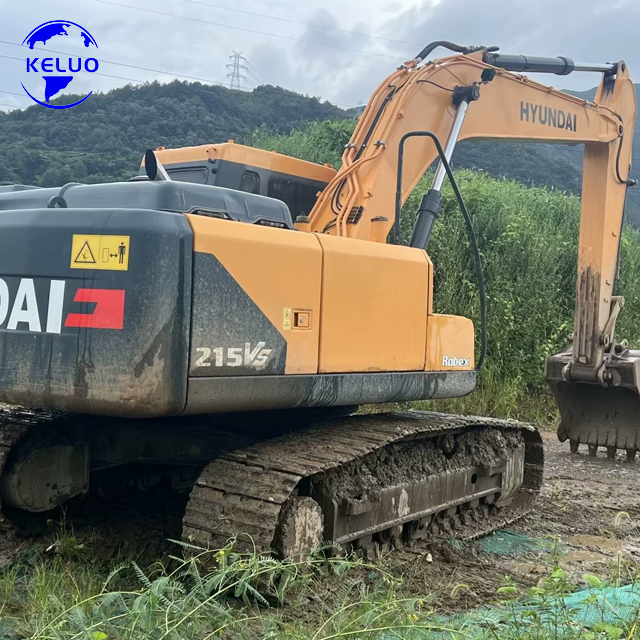Views: 0 Author: Site Editor Publish Time: 2025-05-16 Origin: Site









Becoming an excavator operator is a highly skilled and rewarding career path within the construction and heavy machinery industries. Excavators are essential machines used for digging, lifting, demolition, and material handling. The role demands technical expertise, safety awareness, and precision control of hydraulic systems. This guide details the step-by-step journey to become a proficient excavator operator, while also highlighting how modern excavators, such as those manufactured by Hebei Keluo Construction Machinery Co., Ltd., empower operators to perform efficiently and safely.
Excavator operators are responsible for controlling hydraulic excavators to complete various site tasks, including trenching, grading, and site preparation. Precision in maneuvering the boom, arm, and bucket is crucial to maximize productivity and minimize safety risks. Operators must also conduct pre-operation inspections, perform routine maintenance, and coordinate with construction teams to ensure seamless workflow.

Most employers require operators to have at least a high school diploma or equivalent. Physical fitness is equally important, given the demands of sitting for long periods, operating complex controls, and maintaining focus in outdoor and sometimes hazardous environments.
Vital attributes include:
Excellent hand-eye coordination
Spatial awareness and depth perception
Good concentration and quick decision-making abilities
Basic mechanical understanding to handle equipment issues
A solid grasp of how excavators work—especially the hydraulic power system—is fundamental. Excavators rely on hydraulic fluid pressure to move their boom, arm, and attachments smoothly and powerfully. Understanding these systems enables operators to detect minor faults and operate machinery more effectively.
Hebei Keluo Construction Machinery Co., Ltd. designs excavators with advanced hydraulic power systems that offer smooth, reliable control, reducing operator strain and improving task accuracy.
Structured training programs at vocational schools, equipment colleges, or specialized centers blend classroom theory with practical experience. Topics typically include:
Excavator operation techniques across different models
Handling various attachments like buckets, breakers, and grapples
Safety regulations and hazard awareness on construction sites
Routine maintenance and equipment inspection protocols
Certification validates operator competency and is often required for job eligibility.
Practical experience is indispensable. Many operators start as laborers or equipment assistants, gradually familiarizing themselves with construction sites and machinery. Apprenticeships offer supervised learning opportunities where novices refine their control skills, learn site procedures, and develop communication with team members.
Excavator operation increasingly involves advanced technology, including GPS systems, telematics, and partial automation. Operators must adapt to these trends to enhance precision, safety, and efficiency.
Operators familiar with intelligent excavators can leverage features such as:
Automated digging presets for consistent grading
Real-time performance monitoring to prevent breakdowns
Fuel-efficient hydraulic systems that reduce environmental impact
Hebei Keluo Construction Machinery Co., Ltd. produces excavators integrated with intelligent hydraulic systems and customizable control layouts, equipping operators to meet modern site demands confidently.
Experienced excavator operators can pursue roles such as site supervisors, equipment trainers, or maintenance specialists. Expanding expertise to operate various excavator sizes or specialize in attachments increases employability and earning potential.

Operator performance heavily depends on the excavator’s design and reliability. Ergonomic cabins, responsive hydraulic controls, and durable components reduce operator fatigue and increase job accuracy.
Hebei Keluo Construction Machinery Co., Ltd. excavators stand out with:
Robust hydraulic systems delivering powerful and smooth digging capabilities
Durable frames and components designed for harsh environments
Flexible customization options to suit varied operational needs
Enhanced operator comfort features, promoting longer and safer working hours
This synergy between advanced machinery and skilled operators leads to superior site productivity and safety.
Virtual Reality (VR) Simulators: Providing immersive, risk-free environments for skill development.
Remote Excavator Operation: Enhancing safety by allowing operators to work away from hazardous zones.
Sustainability Practices: Training operators in eco-friendly excavation techniques and fuel-efficient equipment use.
Training duration varies but typically ranges from a few weeks to several months, followed by gaining practical site experience.
While it depends on local regulations, most commercial sites require certification or proof of competency for safety reasons.
Key skills include hand-eye coordination, mechanical aptitude, situational awareness, and communication abilities.
Yes, training can focus on mini, standard, or large excavators, as well as specific attachments.
Advanced technology improves precision, efficiency, and safety but requires operators to continually update their skills.
Becoming an excavator operator involves a combination of education, hands-on training, and embracing modern hydraulic excavator technologies. A comprehensive understanding of equipment, safety, and site operations is essential.
High-quality excavators, such as those from Hebei Keluo Construction Machinery Co., Ltd., provide the reliability and advanced features needed to support operators in meeting today's construction challenges effectively. Through continuous learning and using cutting-edge machinery, excavator operators can build a rewarding and sustainable career in the heavy equipment industry.

